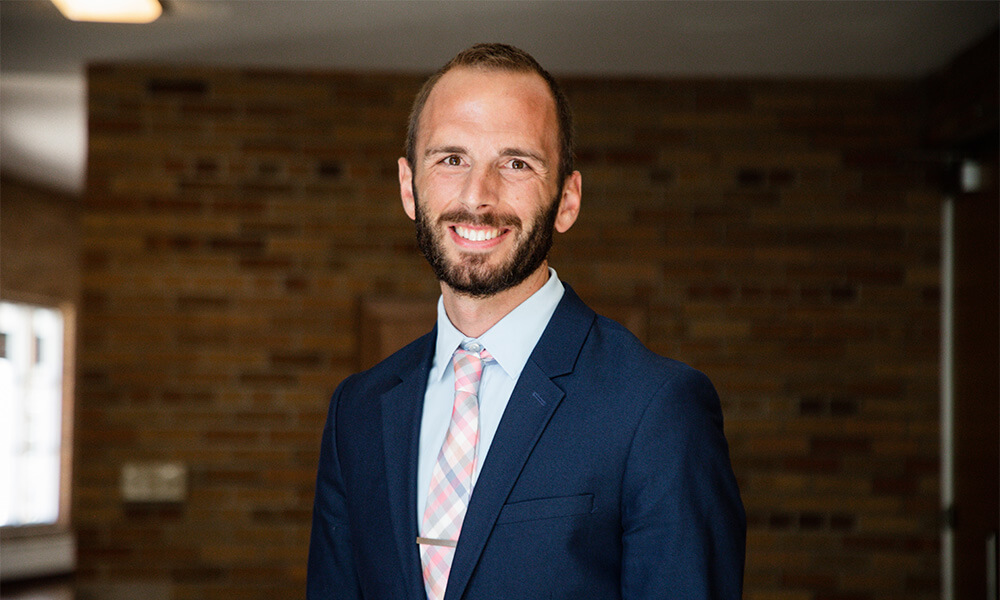
Can you “out-exercise” an inactive lifestyle? With research funding from the American Heart Association, a Concordia professor will set out to determine if it’s possible.
A CUW physical therapy professor and alumnus has received a two-year grant from the American Heart Association (AHA) to study how a sedentary lifestyle may affect physical activity.
Assistant Professor of Physical Therapy Kevin Gries, PhD, is the principal investigator of the $154,000 grant. Starting this spring, he will team up with fellow Concordia faculty – Professor of Pharmacy Joe McGraw, PharmD, PhD, and others within the Physical Therapy and Health and Human Performance departments – to explore the extent to which daily exercise recommendations may need alteration when sedentary lifestyles are considered. The Concordia researchers will utilize blood draws and muscle biopsies of participants to assess molecular responses to inactivity-impacted exercise routines.
Inactive lifestyles may yield greater exercise resistance
Gries predicts that adults – due to the rise in deskbound careers over the past couple of decades – actually need more physical activity than what experts typically recommend. If Gries’ research hypothesis proves true, it could contribute to significant modifications among health experts’ long-standing exercise recommendations for adults.
Currently, leading health organizations, including the AHA, Center for Disease Control and Prevention (CDC), and the World Health Organization (WHO), recommend 150 minutes of moderate-intensity physical activity per week.
“These guidelines are based on research that was conducted decades ago, when careers and the average activity levels of adults were vastly different,” said Gries. “The whole idea of even thinking about inactivity is so new to us, even in the last 15 years. We’ve never really thought about being inactive before because our jobs were so much more hands-on at one time.”
Pinpointing the ideal amount of exercise can have a huge impact on an individual’s overall health outcomes, explains Gries. Exercise has long been tied to numerous health benefits such as improved metabolism, increased muscle mass, reduced blood pressure, improved bone density, management of chronic conditions, and mental health improvement.
“I’ve always been interested in enhancing the exercise response,” said Gries. “We still need to set aside times for those moderate- to high-intensity exercise periods, but we also need to pay more attention to the period outside of exercise to make sure we’re getting the most bang for our buck.”
Become a research participant
Gries and his research collaborators are soliciting participants for this study now through summer 2025. Study subjects need to be:
- 19-30 years old
- Free from acute or chronic illness (cardiac, pulmonary, liver, or kidney abnormalities, cancer, uncontrolled hypertension, insulin- or non-insulin dependent diabetes, or other known metabolic disorders)
- Free from orthopedic limitations (including any artificial joints)
- No known lidocaine allergy
- Do not currently smoke or participate in other forms of tobacco use
- Not currently in a structured exercise program
Email Gries at Kevin.Gries@cuw.edu if interested.
WANT IN?
Concordia’s PT program equips you with a sound foundation in movement science, faith, and integrity. Whether you’re currently a PTA or beginning your search for PT schooling, our program will empower you to graduate prepared.